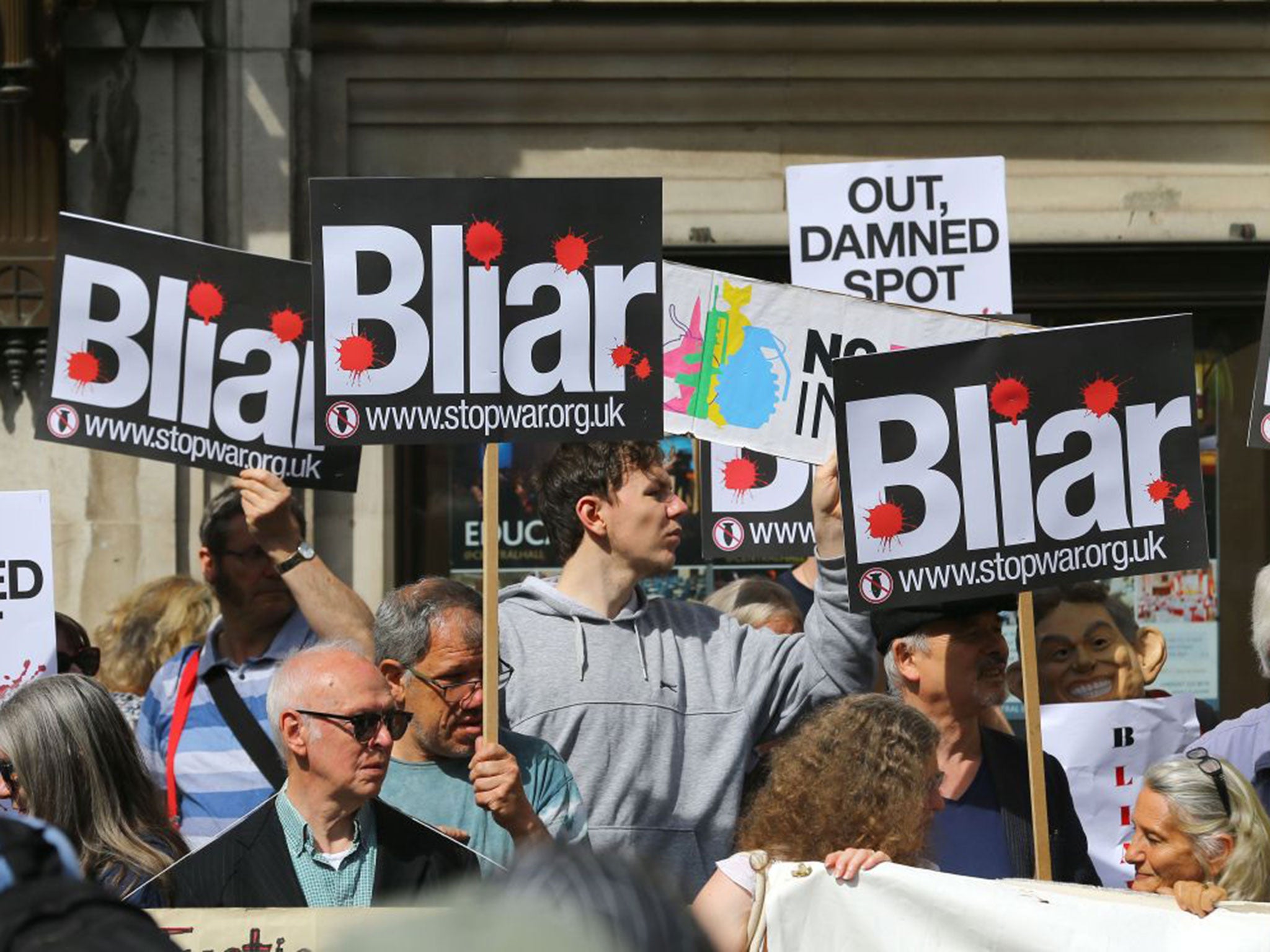The Chilcot report vindicates all of us who marched against the Iraq War
Our nation’s collective memory crystalised around the anti-war march. It became the event through which we realised that demonstrations count for very little in our democracy

Your support helps us to tell the story
From reproductive rights to climate change to Big Tech, The Independent is on the ground when the story is developing. Whether it's investigating the financials of Elon Musk's pro-Trump PAC or producing our latest documentary, 'The A Word', which shines a light on the American women fighting for reproductive rights, we know how important it is to parse out the facts from the messaging.
At such a critical moment in US history, we need reporters on the ground. Your donation allows us to keep sending journalists to speak to both sides of the story.
The Independent is trusted by Americans across the entire political spectrum. And unlike many other quality news outlets, we choose not to lock Americans out of our reporting and analysis with paywalls. We believe quality journalism should be available to everyone, paid for by those who can afford it.
Your support makes all the difference.The protest against the Iraq war took place on February 15, 2003. I was 15, and it was my first protest against anything or anyone other than my parents.
With two friends and their parents I jumped on a train into London to be part of it. We were studying GCSE History and in class we learned about the 20th century conflicts that loomed large over our parents and grandparents lives. We, the younger generation had not been ‘at war’ in our own lifetimes and we didn’t want to be.
The turnout to the protest was somewhere between 2-million and 750,000 and the air was one of idealism and belief in a common cause. To this day it is still the largest ever public demonstration in this country.
We joined the rally in Hyde Park, there were high profile speakers such as Bianca Jagger and Tony Benn. We couldn’t see them, as the parents accompanying us kept us back, on the outskirts. Despite this we felt the overwhelming sense of being part of something; knowing that others were protesting in unison with us across Europe was goosebump-inducing. I’d go as far as to describe that day as an awakening. Naively, perhaps, we genuinely thought we would be listened to. With so many people together coming together to express anti-war sentiment how could we not be?
Yet, it was dismissed. The war went ahead under Blair’s leadership. Labour leaders since, Miliband and Corbyn, have denounced it and called it a “mistake”.
Political cynicism and disillusionment certainly wasn’t invented in 2003 but it has become deeply entrenched since. Our nation’s collective memory crystalised around the anti-war march. It became the event through which we realised that demonstrations count for very little in our democracy.
Futile protest is a trend that has continued throughout my own lifetime – my twenties being marked by fruitless expressions of anger and disappointment.
In 2010, I had just graduated and was working at Parliament. I found myself kept inside and unable to join while people protested against the £9,000 hike in tuition fees before being kettled into the night. Despite this large scale expression of disgust and the many reasoned arguments against the increase, the bill was passed. An entire generation’s voice was dismissed as the media reported on the individuals who had acted out of line that day.
In the years that have followed we’ve seen people come together for other large-scale protests, although none so large as the anti-war march of 2003. People have marched against austerity, against airstrikes in Syria, for David Cameron resignation, and most recently, against Brexit. Each time the protests proved themselves to be pointless.
And yet, millions of people continue to march and sign petitions which they know are unlikely to affect change. Why do they bother? To share their frustrations, to vent their anger and to remember that they aren’t alone.
Will the outcome of the Chilcot report mean that politicians will take more head of public opinion? Probably not. Does it change anything? Not really. But do those, who marched that day feel vindicated by the report’s finding that: ''Blair sent troops in before peaceful options exhausted'? Yes.
Join our commenting forum
Join thought-provoking conversations, follow other Independent readers and see their replies
Comments